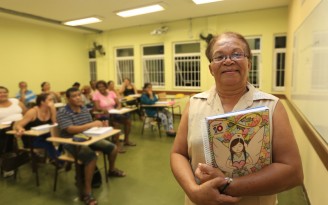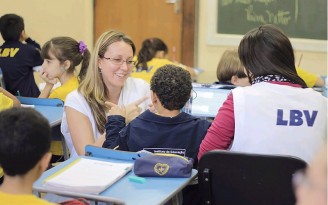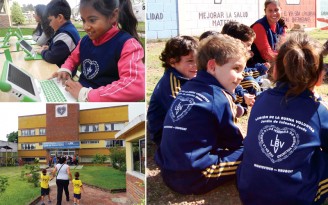
Teaching for Peace
The school and its role in educating key players of sustainable development
Suelí Periotto
Friday | October 18, 2013 | 1:47 PM | Last update: September 22, 2016, 4:07 PM (Brasilia time)
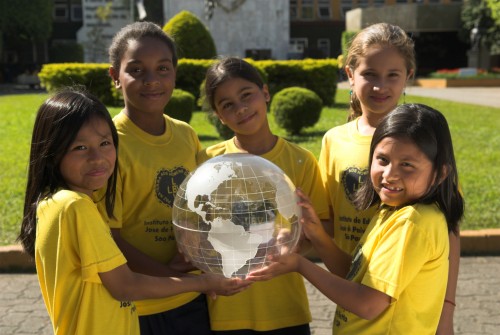
The last century has shown that technological innovation in itself is not sufficient for achieving sustainability. A more profound revision of the paradigms and values that are capable of transforming global society is necessary. The act of producing and disseminating socio-environmental technologies needs to involve not purely scientific knowledge, but also knowledge that has been accumulated over thousands of years by the various cultures.
Constant incentives for establishing a culture that reproduces sustainable actions in schools can prepare protagonists for a new world scenario, opening up paths toward environmental preservation and a raised awareness of the importance of sustainability. They will be the young agents who will inspire times of change, whose new ideas will influence others to persevere along the same path of a humane progress.
The Legion of Good Will (LBV) takes its experience of a Culture of Peace to all the communities where it operates in Brazil and abroad. In its schools, Community Centers for Social Assistance, and homes for the elderly, the Organization develops socio-educational activities and programs that directly address the technological needs and the cultural background of those assisted.
The LBV is mindful of their local realities, which is why it values the cultural roots of each community and facilitates their access to the digital world and other innovative resources. At the same time, the Organization encourages reflections on the values of citizenship, ethics, and ecumenical spirituality. In a permanent partnership with the LBV, teachers from public and private education systems are invited to participate in projects of the Organization by means of lectures and pedagogical workshops, as well as take part in an education congress that is held annually.
Intellect and feelings
The LBV is concerned with intellectual development and unlocking the social, affective, ethical, and intuitive potential of students, by familiarizing them with new technologies and thus better preparing them to enter the labor market and strengthening the chances of them continuing with their studies. To do so, the Organization uses its own educational methodology, comprised of the Pedagogy of Affection and the Ecumenical Citizen Pedagogy, created by the educator and President of the LBV José de Paiva Netto. This approach allies the intelligence of the brain with that of the heart, in such a way that the skills developed by students are permeated with ethical, ecumenical, and spiritual values. Therefore, it guarantees a higher quality of education while also creating the necessary conditions for experiencing ecumenical citizenship, based on the feelings of solidarity, peace, and respect for differences.
When welcoming children and teenagers who live in a situation of vulnerability into its school network and into the socio-educational programs it maintains in more than 70 Brazilian cities, the LBV offers them the opportunity to have access to computers and its basic tools. The proposal of a complete education—which includes the values of a Solidary, Altruistic, and Ecumenical Society—serves as basis for the students to pursue their academic career. As a result, they will also help build a culture based on sustainability and social justice, aware of the use of new technologies.
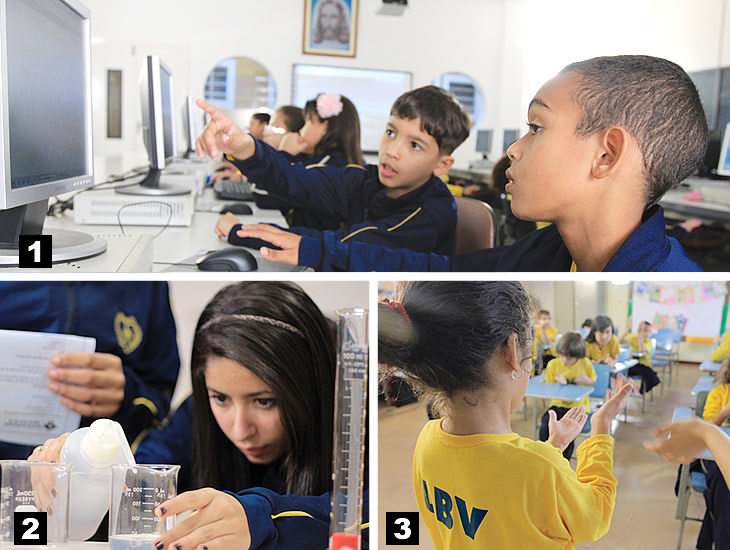
The vocation of fostering agents for sustainable development gains focus in the LBV’s means of communication. Following teaching concepts, the Legion of Good Will produces and/or supports educational content for the radio, TV, the Internet, and publications. Much of this work is produced by former students of the Organization, as a result of a permanent program for preparing professionals to work in the audiovisual and multimedia production areas; it is currently in the process of becoming a social communication technical school. The activity is in tune with the Organization’s educational and social assistance directives, since the children, young people, and adults who are helped are also encouraged to become multiplying agents of sustainability. This proposal gains new spaces every time the community itself creates conditions for dialogue and strengthens the participation of everyone in the search for solutions to local problems.
Digital inclusion strategies
The Organization is attentive to the use of technological resources in formal education and seeks to keep up-todate. Thus, it values the paths that meet the individual needs of the student. This is particularly pertinent in special educational situations, diagnosis of psychological disorders and mobility disabilities many times a result of a developmental coordination disorder (see: Brazilian Sign Language promotes interaction in the classroom). The LBV’s multidisciplinary teams turn to strategies that facilitate learning based on student’s medical reports received from psychologists, psychiatrists, speech therapists, and teachers.
As a result of this work quality education is applied in a welcoming environment, which associates the values of ecumenical citizenship with teaching activities from a very early age. This unique approach contributes to a well-founded socio-affective development of the child and is the basis of the complete education of an individual, in accordance with the premises of the educational method applied in the Organization’s schools.
The LBV believes that world society can benefit tremendously from the solidarity-based use of new technologies, especially information and communication technologies (the basis of the digital economy) and socio-environmental technologies, which equally deserve a position of prominence in the investment agenda of governments and the private sector. The Legion of Good Will also highlights the need to intensify the global debate about scientific practice and its ethics so that the advances in research do not serve a logic that is strictly economic and exclusory, which only aggravates inequalities.
To this end, educator Paiva Netto warns: “In addition to the power of Reason, the widely intended structural change must rely on the best of People’s Sentiments; if not, it will continue expressing the fanciful will which, on so many occasions, it was almost transformed into. We need, therefore, to form an alliance of our hearts and minds urgently. Let them raise their eyes on high, but their feet need to be kept firmly planted on the ground.”
__________________________
*Suelí Periotto, supervisor of the Good Will Pedagogy (comprised of the Pedagogy of Affection and the Ecumenical Citizen Pedagogy) and Principal of the José de Paiva Netto Educational Institute, in São Paulo (Brazil). She holds a Master’s degree in Education from PUC-SP. She is also a conference speaker and the host of the Educação em Debate [Education on Focus] program of the Super Good Will Radio Network (Follow the program at www.boavontade.com — available only in Portuguese).
